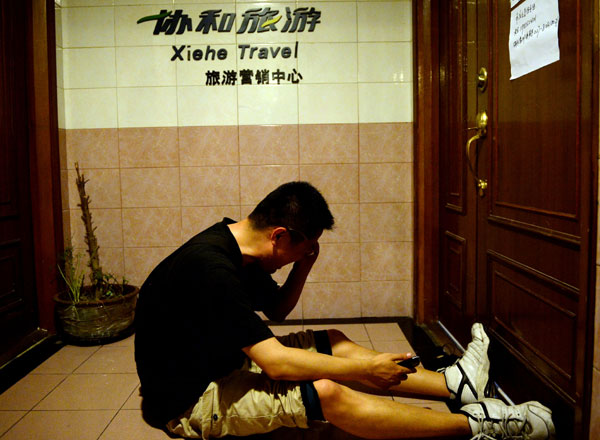Tragedy may prompt cruise industry revamp
By Tan Yingzi (China Daily) Updated: 2015-06-17 07:49
|
A man cries outside the offices of Shanghai Xiehe Travel Agency, which organized the ill-fated Eastern Star cruise. Lai Xinlin / for China Daily |
He said the operators face several major challenges, including a dual system of service evaluation, unfettered price competition, rising costs and rigid itineraries.
The dual-evaluation system - under which the tourism authorities assess cruisers that carry foreign tourists, while the Ministry of Transport checks those used by domestic travelers - has attracted the most criticism on the grounds that it is misleading.
"By the ministry's standards, the Eastern Star is a luxury ship. The dual standards confuse travelers when they choose cruises," Wang said.
The Eastern Star was built in 1994 as a standard passenger liner, but was refitted in 1997 to meet the rising demand for cruises on the Yangtze. The travel agency described the vessel as a "luxury liner" in its publicity material, but several industry insiders said the claim was untrue.
"The Eastern Star was not a luxury vessel at all," said Zhou Zhuo, general manager of Victoria Cruises, a high-end cruise company. "The quality of service, and the standards of facilities and management cannot be compared to the new five-star ships."
Wang suggested that the dual-evaluation system should be unified and that a national standard for cruise vessels should be formulated.
- Govt encourages people to work 4.5 days a week
- Action to be taken as HIV cases among students rise
- Debate grows over reproductive rights
- Country's first bishop ordained in 3 years
- China builds Tibetan Buddhism academy in Chengdu
- Authorities require reporting of HIV infections at schools
- Typhoon Soudelor kills 14 in East China
- Police crack down on overseas gambling site
- Debate over death penalty for child traffickers goes on
- Beijing to tighten mail security for war anniversary








